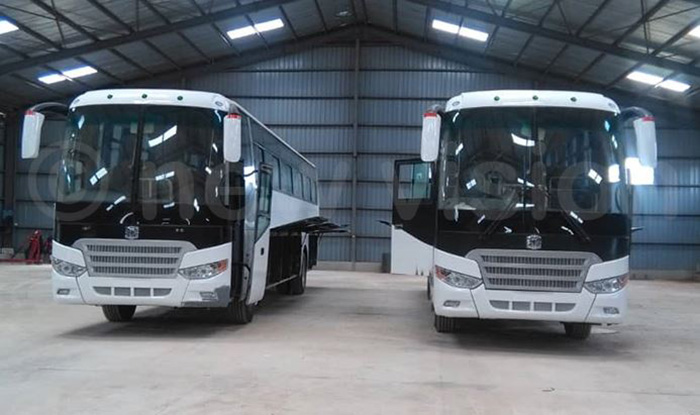Govt to ban second-hand cars as Kiira plant takes shape
Aug 15, 2021
The President also reiterated his ban on importation of wholly built buses, a move he said will save the country’s resources.

With importation of vehicles, Museveni said the country loses both jobs and revenue to the countries of origin.
Martin Kitubi
Journalist @New Vision
MUSEVENI | KMC | OLD VEHICLES
JINJA - President Yoweri Museveni has revealed that the country will stop the importation of reconditioned vehicles once the Kiira Motors Corporation (KMC) gains market.
The President also reiterated his ban on importation of wholly built buses, a move he said will save the country’s resources.
He said the country prefers value addition through fabrication and manufacturing.
“We will discuss the issue of second-hand vehicles. Once we start making vehicles, we will ban all second-hand cars. We want to move step by step and once we are ready, we will have it,” he said.
The President said the country spends an estimated $550m (about sh2 trillion) to import reconditioned vehicles. This, he said, is equivalent to squandering the country’s annual revenues from coffee exports.
With importation of vehicles, Museveni said the country loses both jobs and revenue to the countries of origin.
The President made the remarks on his maiden tour of the Kiira Motors vehicle plant under construction at Mutai village in Jinja district.
During the event, President Museveni also laid the foundation stone on the plant. The construction of the plant was contracted to the National Enterprise Corporation (NEC), the business arm of the Uganda People’s Defence Forces. NEC is utilising personnel from the UPDF Engineering Brigade.
The construction of the KMC vehicle plant has taken shape from dugout channels, shrubs, bushes and streams running through a sugarcane plantation to an assembly plant awaiting final touches to operate.
These changes have happened in a space of 12 months, thanks to the day and night work by the NEC engineers. Isaac Paul Musasizi, the chief executive officer of Kiira Motors Corporation, said the construction works stand at 85% and that the plant is expected to be ready by the end of this year.
He said the plant will open opportunities for Ugandans in form of supplies for batteries, seats, bolts and nuts, among others. Lt. Gen. James Mugira, the managing director of NEC, noted that if funds are available, the plant will be up and running within the set target.
Road map
According to projections, KMC targets to manufacture a total of 5,000 vehicles in the first years of production. Over the years, the numbers are expected to grow to over 150,000 annually, the ultimate target for KMC.
According to the plan, vehicles operating with internal combustion engines as well as electric ones will be produced by KMC.
According to the KMC roadmap, the automotive company intends to address the mobility needs of the target market with a variety of products, including buses, sedans and pickup trucks.
KMC will produce utility vehicles to address city and off-road utility duty cycle and executive sedans such as the Kiira EVS made to order.
The sedans will be for the niche market segment of high-profile persons seeking executive mobility including car-hiring services.

No Comment